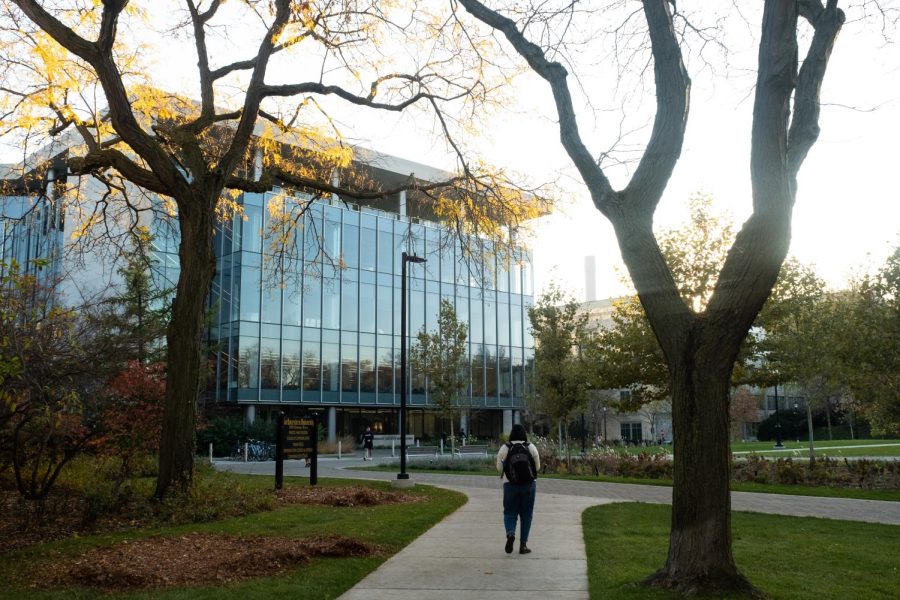NU students discuss favorite study strategies
Daily file photo by Seeger Gray
Many Northwestern students spend hours in Mudd Library in preparation for midterms.
April 27, 2023
Picture this: It’s the night before the third midterm of the week, and students are cramming in Mudd Library’s 24-hour section. Their noise-canceling headphones blast study music playlists at full volume — sound familiar?
For some Northwestern students, every week feels like midterms week. NU students might not find the study methods that best suit them overnight, but they say navigating techniques for focusing may be the biggest lesson learned in college.
Weinberg sophomore Julianna Tia said freshman year served as a trial-and-error period.
“I hadn’t really identified which study methods worked best for me, and so I always felt that I had to study with a group,” Tia said. “But I realized that it just ended up making me distracted and wanting to socialize with other people.”
Now, Tia has nailed down her study routine. She finds a place with natural light and listens to lo-fi music.
Tia also practices active recall techniques. She jots down main points to study and rewrites concepts from memory, which she said is especially applicable to premedical students like her.
“While I think active recall is a very effective way of studying for anyone, I feel like it’s stressed the most for premed students,” Tia said. “What we study — like (biology) and chemistry — it requires a lot of memorization of facts.”
Psychology Prof. William Horton said he recommends retrieval practice, which involves repeatedly quizzing oneself on certain material.
According to Horton, students tend to overestimate how well they know the material. So, retrieval helps students better determine the extent of their knowledge and avoid false judgments of learning.
“To the extent that you can expose yourself to opportunities to practice retrieving the information, you’ll do better when it comes down to retrieving it for real,” Horton said.
Even though it may be tempting, Horton said, students shouldn’t spend all their time studying for exams. Creating a healthy balance between school and other aspects of college — such as work, hobbies and social life — is crucial for mental and physical well-being, he said.
Weinberg freshman Nathan Reed sets aside time during the day to work, which frees up his nights for other activities like hanging out with friends or exercising.
“Generally, when the sun goes down, I try to minimize my studying,” Reed said. “That makes it so I have a lot of time in between studying and going to sleep so that I have time to decompress.”
Reed said he also engages in active recall. Before exams, Reed rewrites his notes by memory for reading-based classes. For his math and chemistry courses, he resorts to grinding out practice problems.
Exam season can be stressful and overwhelming for students, according to Horton. Finding the best study methods may be important, but he added it’s even more critical to find effective self-care methods.
Whether it’s taking a walk by the Lakefill or calling up an old friend, many students have their own way of stepping away from the books and screens. Tia said journaling helps her get rid of the distracting thoughts while studying. Reed enjoys listening to electronic dance music classics to relax.
“It’s good to balance the focus of studying and paying attention to what you have to learn, but then balance that with giving yourself permission to do other things too,” Horton said. “It can’t just be all work and nothing else.”
Email: [email protected]
Related Stories:
— Students reflect on balancing sleep schedules with academics, other responsibilities
— From your first day to finals: What you need to know about NU academics
— Students and professors work to balance class schedules and Thanksgiving break


